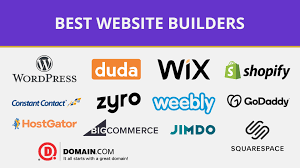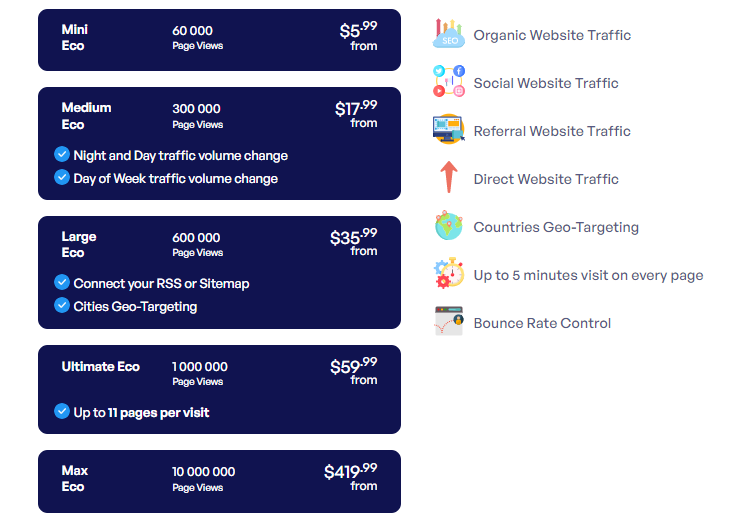A blog is a frequently updated online platform or website that features written content, often presented in a chronological order, with the most recent posts appearing at the top.
Blogs can cover a wide range of topics and serve various purposes, including personal expression, information sharing, and business promotion.
What Is A Blog Post
A blog post is a single entry or article that is published on a blog, which is a website or online platform dedicated to regularly sharing written content. Blog posts are typically displayed in reverse chronological order, with the most recent post appearing at the top of the blog's homepage.
Each blog post is a self-contained piece of content that can cover a wide range of topics, such as personal experiences, news, how-to guides, product reviews, opinion pieces, tutorials, and more. Bloggers use posts to share information, express their thoughts and opinions, provide valuable insights, entertain readers, or promote products and services.
A typical blog post includes several key elements:
Title
The title is a concise and descriptive headline that summarizes the main topic or theme of the post. It's meant to grab the reader's attention and give them an idea of what to expect from the content.
Content
The body of the blog post contains the main text, images, videos, and any other media or elements that support the content. This is where the author provides information, analysis, or storytelling related to the chosen topic.
Author Information
Many blog posts include information about the author, such as their name, bio, and sometimes a photo or contact details. This helps readers get to know the writer and establish credibility.
Publication Date
The date when the blog post was published is typically displayed near the top or bottom of the post. It's important for readers to know when the content was last updated or created.
Blog posts often allow readers to leave comments, ask questions, or share their thoughts. Engagement with readers through comments can foster discussions and community building.
Categories and Tags
Blog posts are often categorized and tagged with keywords or topics to help readers navigate and find related content on the blog more easily.
Social Sharing Buttons
To encourage readers to share the post on social media platforms, many blog posts include buttons that allow users to easily share the content with their networks.
What is a blog used for?
Content Sharing
A blog provides you with a platform to share your thoughts, ideas, expertise, and experiences with a global audience. Whether you're a writer, hobbyist, or professional, blogging allows you to connect with like-minded individuals who are interested in your niche.
Establishing Authority
Blogging can help you establish yourself as an authority or thought leader in your field. By consistently producing high-quality content, you can build trust and credibility among your readers, making them more likely to trust your recommendations or opinions.
SEO Benefits
Search engines love fresh, relevant content. Blogging regularly can improve your website's search engine optimization (SEO) by providing new content for search engines to index. This can lead to higher rankings in search results and increased organic traffic to your site.
Community Building
Blogs often attract a community of engaged readers who share common interests. These readers can become loyal followers, commenters, and even contributors to your blog, fostering a sense of community and interaction around your content.
Marketing and Promotion
Blogs can be powerful marketing tools. Whether you're promoting products, services, or your personal brand, a blog can be used to create awareness, engage potential customers, and drive traffic to your main website or business.
Monetization
If you have a sizable and engaged audience, you can monetize your blog through various methods, including advertising, sponsored content, affiliate marketing, and selling digital products or services.
Personal Growth
Blogging can be a fulfilling personal growth journey. It encourages self-expression, research, and learning. Over time, you may improve your writing skills, gain a deeper understanding of your chosen topics, and develop valuable skills like digital marketing and content creation.
What is the difference between a wiki and a blog?
A wiki and a blog are both web-based platforms for creating and sharing content, but they serve different purposes and have distinct characteristics. Here are the key differences between a wiki and a blog:
Purpose:
Wiki: A wiki is primarily designed for collaborative content creation and editing. It allows multiple users to contribute, edit, and revise content collaboratively. Wikis are often used for creating knowledge bases, documentation, and reference materials.
Blog: A blog is primarily designed for individual or group-authored content publication. It is typically used for sharing articles, news, personal reflections, opinions, and other types of content in a chronological format.
Authorship
Wiki: Wikis are collaborative platforms where multiple users, often with different roles and permissions, can contribute and edit content. Authorship is distributed among contributors, and edits are typically attributed to the username or account of the person making the change.
Blog: Blogs are typically authored by one or a few individuals or authors who create and manage the content. The authorship is often clearly attributed to the writer(s) of each blog post.
Content Structure
Wiki: Wikis use a flexible and interconnected structure that allows for the creation of linked pages and the organization of content into categories or topics. They often use a hierarchical structure with a table of contents.
Blog: Blogs have a linear and chronological structure, with new posts appearing at the top of the blog's homepage. Content is organized by date, and readers typically scroll through older posts as they move down the page.
Editing and Revisions
Wiki: Wikis emphasize collaboration and version control. They keep a record of all edits and revisions, allowing users to review the history of changes, compare versions, and revert to previous states if necessary.
Blog: Blogs focus on publishing new content, and while some content management systems offer version history, the emphasis is on the most recent posts rather than tracking detailed edit histories.
Audience Interaction
Wiki: Wikis are often used for building knowledge bases or reference materials, and they may not emphasize reader interaction or comments as much as blogs do.
Blog: Blogs are designed for reader engagement. They typically include features like comments sections where readers can provide feedback, ask questions, and engage in discussions with the author and other readers.
Examples
Wiki: Wikipedia is one of the most well-known examples of a wiki, where users collaboratively create and edit encyclopedia articles.
Blog: Examples of blogs include personal blogs, news blogs, company blogs, and niche-specific blogs, where authors publish articles and updates on various topics.
15 Tips on How To Promote Your Blog
Promoting your blog effectively is essential to increase its visibility, attract a larger audience, and ultimately achieve your blogging goals, whether they involve building a personal brand, driving traffic to your website, or monetizing your content. Here are some strategies and tips to help you promote your blog:
Produce High-Quality Content
Before focusing on promotion, ensure your blog offers valuable, well-written, and engaging content. Quality content is the foundation of a successful blog.
Search Engine Optimization (SEO)
Optimize your blog posts for search engines by using relevant keywords, meta descriptions, and descriptive titles. This will help your content rank higher in search results.
Social Media Promotion
Share your blog posts on popular social media platforms like Facebook, Twitter, Instagram, LinkedIn, Pinterest, and TikTok, depending on your target audience. Use eye-catching visuals and compelling captions to encourage click-throughs and shares.
Email Marketing
Build an email list and send regular newsletters to your subscribers, featuring your latest blog posts, updates, and exclusive content. Email is a powerful way to connect with your audience directly.
Guest Blogging
Write guest posts for other reputable blogs in your niche. Include a link back to your blog in your author bio. This can help you tap into a new audience and build backlinks for SEO.
Collaborate with Influencers
Partner with influencers in your niche for collaborations, interviews, or mentions. Influencers can introduce your blog to their followers and expand your reach.
Engage with Your Audience
Respond to comments on your blog and social media, fostering a sense of community and encouraging return visits. Engage in discussions and build relationships with your readers.
Content Promotion Platforms
Share your blog posts on content promotion platforms like Reddit, Quora, or relevant forums and communities. Ensure your contributions are genuinely helpful and not overly promotional.
Use Hashtags
On social media, use relevant hashtags to increase the discoverability of your content. Research popular hashtags in your niche and incorporate them into your posts.
Repurpose Content
Transform your blog posts into other formats such as videos, podcasts, infographics, or slideshows. Share these across various platforms to reach a broader audience.
Collaborate with Other Bloggers
Partner with other bloggers for co-authored posts, interviews, or content swaps. Cross-promotion can help both parties expand their reach.
Paid Advertising
Consider running paid advertising campaigns on platforms like Google Ads, Facebook Ads, or Instagram Ads to target specific audiences and promote your blog posts.
Regular Posting Schedule
Stick to a consistent posting schedule. Readers are more likely to return if they know when to expect new content.
Analytics and Data Analysis
Use analytics tools to track the performance of your blog posts. Identify which topics and promotion strategies are most effective and adjust your approach accordingly.
Networking and Building Relationships
Attend industry events, conferences, and webinars to network with fellow bloggers and potential collaborators. Building relationships in your niche can lead to opportunities for promotion.
Conclusion
Blog posts are a fundamental component of blogging, and they are created and published on a regular basis to keep the blog's content fresh and engaging for its audience. The frequency of posting can vary from daily to weekly or even less frequently, depending on the goals and resources of the blog owner.








